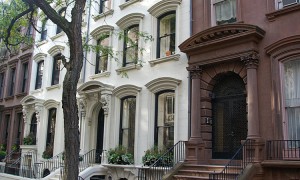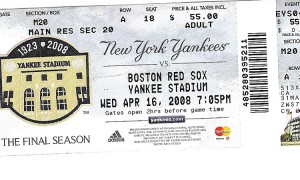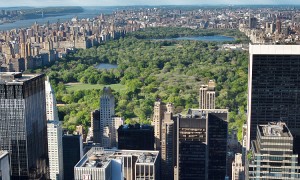Home to Wall Street, the New York Stock Exchange, and the Federal Reserve Bank, the Financial District NYC has long been known for its all-business environs. Although the neighborhood remains a hub for finance, it’s also brimming with charm and history, and it boasts excellent public transportation, particularly with the addition of the new Fulton Center.
In the past decade, “FiDi” (as it’s been labeled) has seen a rebirth, now attracting more New Yorkers then ever. The mixed-use section of Manhattan has a lot to offer, including wide-open Battery Park City. Those searching for a place to hang their hat shouldn’t ignore this historic section of downtown, as they may find home sweet home here.
What’s positive about renting in the Financial District NYC?
1. More Space for the Money
Apartments are generally larger and cost less than some other areas south of 14th Street, such as TriBeca and the West Village. Currently, the median price is about $3,600 per month for a one-bedroom in the neighborhood.
2. Bigger Apartments Work Better for Families
More square footage is better suited for couples with children. Room to sprawl is most likely on your wish list if you have little ones or plan on starting a family soon.
3. More Free Wi-Fi Spots
Believe it or not, this part of Lower Manhattan offers more public Internet spots than any other part of the island. This amenity is particularly attractive to those who work from home and look for places to accommodate their mobile office.
4. More Public Artwork
Who would think of the Financial District as a location for public art projects? Most likely, creative endeavors like this wouldn’t be high on someone’s list, but the unexpected perk of discovering art on the streets where you live only adds to your quality of life. You’ll find more free art here than in any other neighborhood in town.
What’s negative about renting in the Financial District NYC?
1. Less of a Neighborhood Feel
Still considered a business district, the area lacks brownstones and tree-lined streets, which populate many other parcels in the city. In turn, everyday life might not feel as comfortable or permanent as it would in the East Village, Upper West Side, or Hell’s Kitchen.
2. Streets Bustling with Crowds
While you can expect relatively quiet evenings and weekends, weekdays will be busy year-round with commuters and nine-to-fivers traveling to work, eating lunches, and meeting for after-work cocktails.
3. Construction
Much of Manhattan is engulfed in construction, but the Financial District NYC will continue to grow and change, which means ongoing building and renovation projects. Noise, dirt, detours, and inconvenience will easily be a regular part of life in the neighborhood. By the same token, growth often brings increased property values and higher prices — which brings me to the next point …
4. Higher Rents in the Future
With major corporations such as Condé Nast relocating to FiDi and the area becoming increasingly family-friendly, more New Yorkers will express interest and desire to live here, which drives the cost of living. As the area continues to evolve and become more desirable, real estate prices will climb and the rental market will undoubtedly become tighter with less inventory in the future.
Image Source: Flickr/Michael Daddino
[cf]skyword_tracking_tag[/cf]






